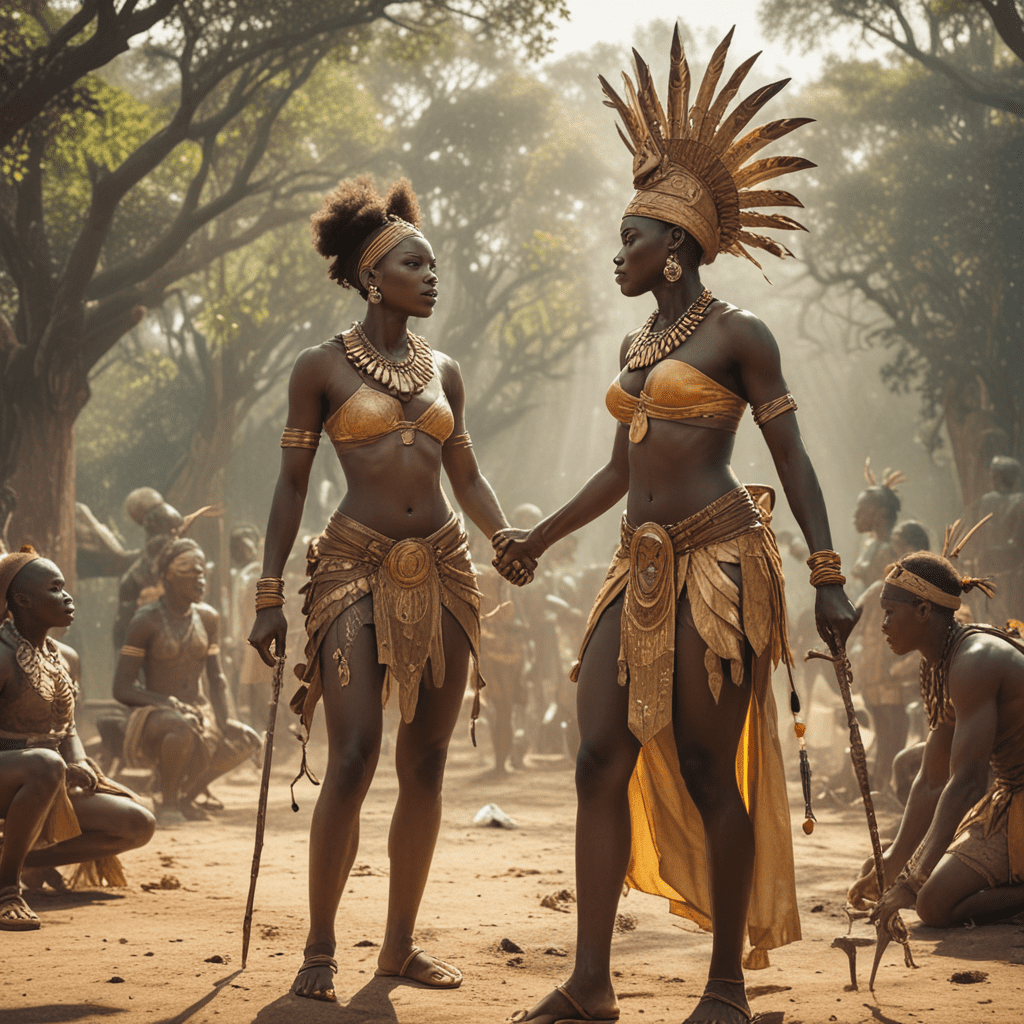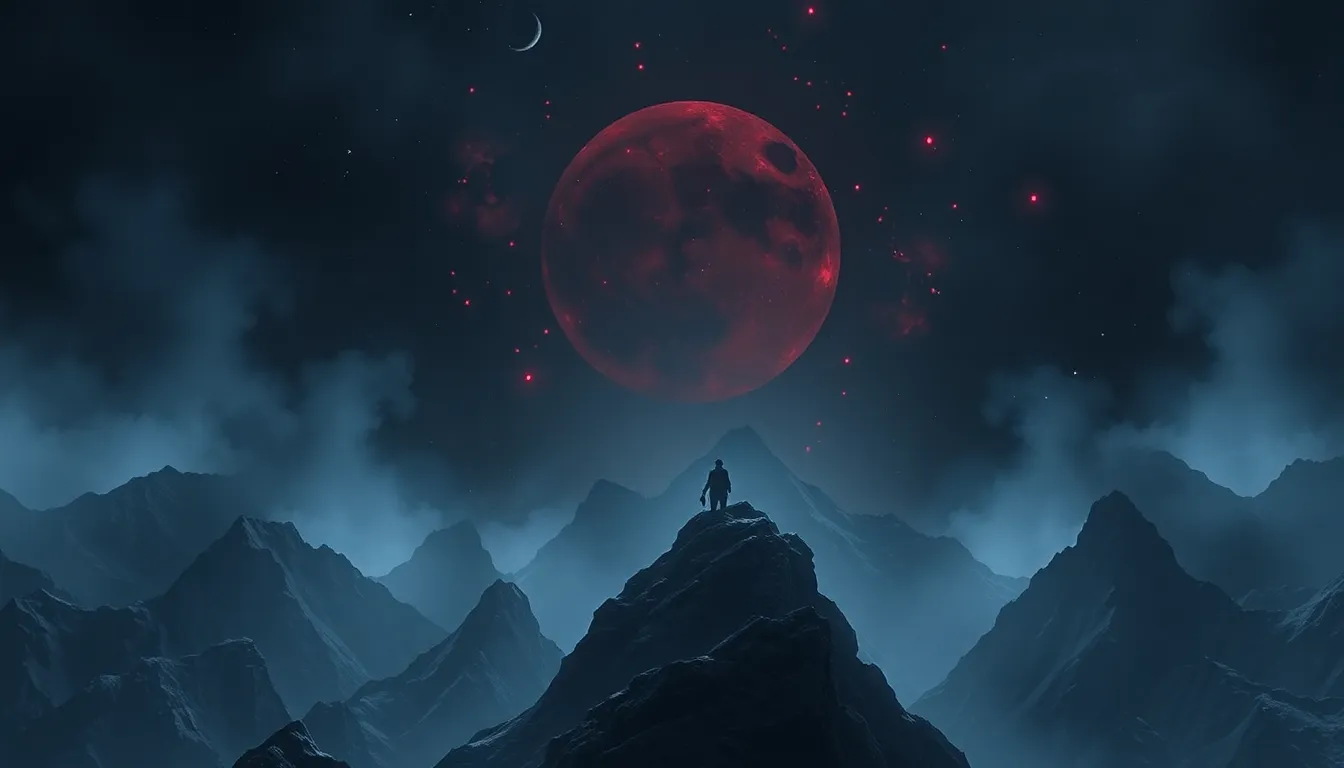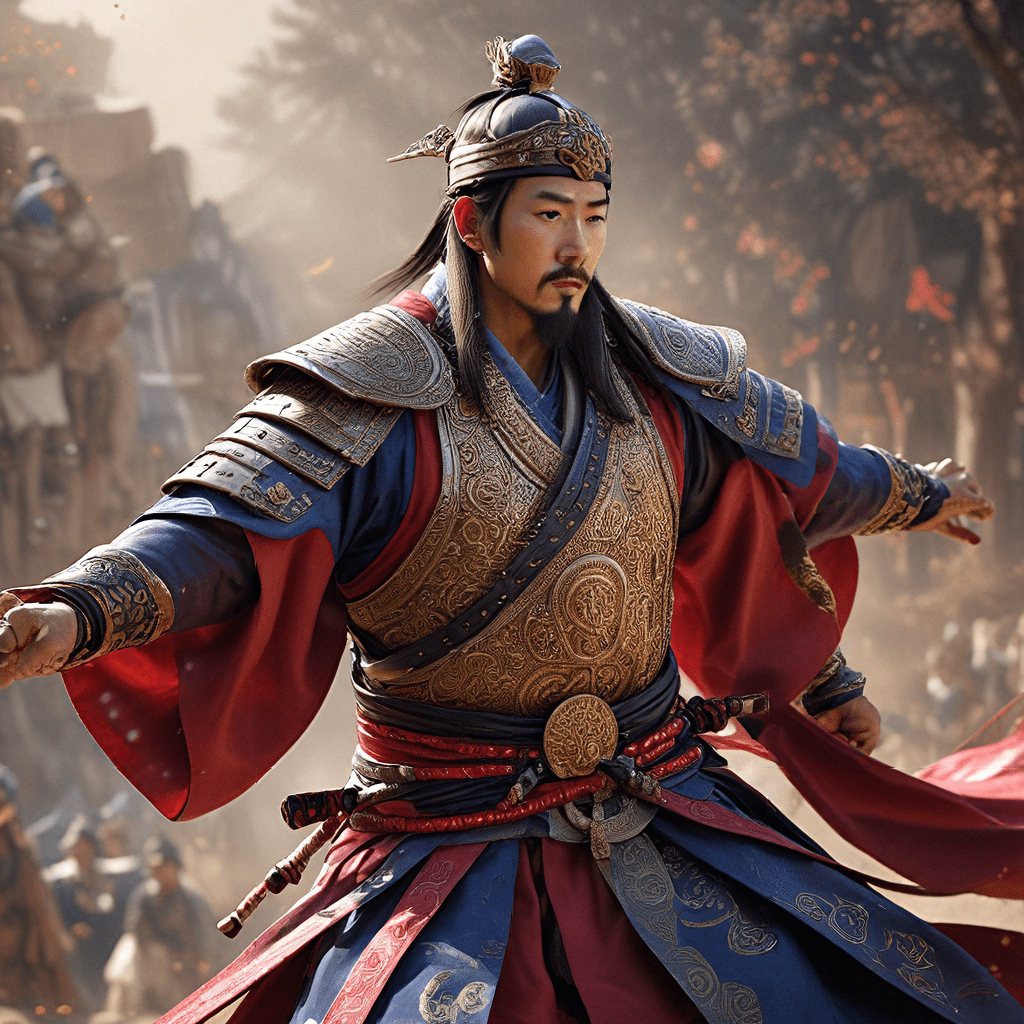Gender Roles in African Mythology
I. Introduction
African mythology encompasses a diverse array of cultures and traditions, each with its unique perspectives on gender roles. These roles often reflect societal norms and values, but they can also challenge and subvert them. This multifaceted approach to gender provides a rich tapestry of perspectives, highlighting the complexities and fluidity of human identity.
II. Female Deities
Many African mythologies feature powerful and influential female deities. These goddesses often embody fertility, creation, and wisdom. In some cultures, they are seen as the source of all life, while in others, they represent specific aspects of the natural world or human experience. Well-known examples include the Egyptian goddess Isis, the Yoruba goddess Oya, and the Igbo goddess Ala. These deities not only reflect the importance of women in society but also challenge traditional notions of female power and agency.
III. Male Deities
Male deities are also prominent in African mythology. They often represent strength, courage, and authority. Some cultures portray them as creators or protectors of the universe, while others associate them with specific natural phenomena or societal roles. Notable examples include the Egyptian god Horus, the Yoruba god Obatala, and the Zulu god Unkulunkulu. These deities symbolize the power and influence of men in society, but they can also embody virtues such as wisdom, justice, and compassion.
IV. Gender-Balanced Deities
Some African mythologies feature deities that embody both masculine and feminine qualities. These gender-balanced deities represent the interconnectedness of all things and challenge traditional notions of binary gender. The Egyptian god Amun-Ra, for example, is depicted as both a male and a female deity, symbolizing the unity of all creation. Similarly, the Yoruba deity Orunmila is associated with both male and female principles, representing the balance and harmony of the cosmos.
V. Gender Transformation
Gender transformation is a common theme in African mythology. Stories of individuals changing their gender, either temporarily or permanently, highlight the fluid and flexible nature of gender roles. These transformations can symbolize personal growth, societal acceptance, or the power of the divine. In some cultures, gender transformation is seen as a sacred or magical act, while in others, it is associated with trickery or deception.
VI. Gender Fluidity
Gender fluidity is another common theme in African mythology. Myths and legends often depict characters who move effortlessly between different gender identities or expressions. These fluid gender roles challenge traditional notions of binary categories and highlight the diverse and multifaceted nature of gender identity. In some cultures, gender fluidity is seen as a natural or innate part of human existence, while in others, it is associated with supernatural forces or social rituals.
VII. Androgyny and Intersex
Androgyny and intersex individuals also feature prominently in African mythology. These figures embody the integration of both masculine and feminine qualities and challenge traditional notions of gender. Androgyny is often depicted as a harmonious balance of male and female energies, representing wholeness and completeness. Intersex individuals, who possess physical characteristics of both sexes, are often seen as sacred or spiritually gifted, embodying the power and diversity of the divine.
VIII. Female Power and Dominance
In many African mythologies, female deities and characters hold positions of power and authority. They may be portrayed as warriors, rulers, healers, or creators. These roles challenge traditional notions of male dominance and highlight the diverse and complex roles that women play in society. Female power is often associated with fertility, nature, and the mystical realms, symbolizing the vital life-giving and nurturing forces that sustain the world.
IX. Male Power and Authority
Male deities and characters in African mythology also hold positions of power and authority. They may be portrayed as kings, warriors, hunters, or shamans. These roles embody traditional masculine values such as strength, courage, and wisdom. Male power is often associated with the physical realm, warfare, and leadership, symbolizing the protective and assertive forces that maintain order in society.
X. Conclusion
Gender roles in African mythology are highly diverse and complex, reflecting the rich cultural heritage of the African continent. These roles challenge traditional notions of binary gender and highlight the fluidity and diversity of human identity. By exploring the mythology of different African cultures, we gain a deeper understanding of the different ways that gender has been perceived and experienced throughout history.
FAQs:
1. What is the role of women in African mythology?
Women in African mythology often hold powerful and influential roles, embodying fertility, wisdom, and creation. They challenge traditional notions of female agency and power, showcasing the diverse roles women play in society.
2. How are male deities portrayed in African mythology?
Male deities in African mythology often represent strength, courage, and authority, embodying traditional masculine values. They may be depicted as kings, warriors, or hunters, symbolizing the protective and assertive forces that maintain order in society.
3. Are there any gender-balanced deities in African mythology?
Yes, some African mythologies feature gender-balanced deities that embody both masculine and feminine qualities. These deities symbolize the interconnectedness of all things and challenge traditional notions of binary gender.
4. Is gender transformation a common theme in African mythology?
Gender transformation is a recurring theme in African mythology, highlighting the fluid and flexible nature of gender roles. Stories often depict individuals changing their gender, showcasing the diverse and multifaceted nature of gender identity.



